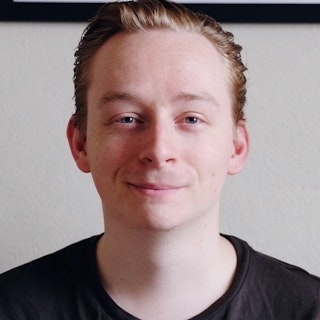Publicis creates 100,000 personalized films for staff using generative AI video tools
The French holdco has used its annual ‘Wishes’ film as a proof-of-concept project testing the feasibility of AI-generated video.

Publicis Groupe boss Arthur Sadoun with his AI 'twin' / Publicis Groupe
AI-generated video might not be ready to replace traditional filming techniques for commercials or films, but it is finding use in other areas, including internal comms.
Publicis Groupe, the French parent company of agencies such as Saatchi & Saatchi and Epsilon, used a range of AI tools to create unique, personalized video ‘thank you’ messages for each of its 100,000 global staff.
The films, which each feature chief executive officer Arthur Sadoun, are delivered in staffers’ local languages and employ a battery of AI video, text, audio and editing tools.
Explore frequently asked questions
Chief strategist Carla Serrano says that the project was prompted by a desire to mark Publicis’s positive commercial performance last year, but it became a useful proof-of-concept work for the holding company.
“We had a few firsts that we’re very proud of: number one in organic growth, number one in new business, number one in ESG. Achievements like this can’t be done without every single person,” she explains. “AI video is really unstable – it can’t tell stories, let alone humor, let alone at scale. But we decided we would embrace that and create 100,000 versions of these films.”

Each film sees Sadoun discussing the past year before introducing an AI ‘twin’ – a more youthful-looking edition of the executive, who speaks in German, Portuguese and Korean with the aid of text-to-voice AI tool ElevenLabs.
Advertisement
The company’s senior executives (its ‘Directoire’), such as chairman Maurice Levy, Sapient boss Nigel Naz, Serrano and president Agathe Bousquet, also feature. Generative AI video tool Runway was used to create animated sections showing Publicis leaders engaged in various sporting activities (industry veteran Levy is pictured wakeboarding), while ChatGPT was used to create a unique script for each message. Information from Publicis’s internal staff operating system, Marcel, was used to personalize each message.
“Everyone has a profile, much like in social media, so we’re aware of their passion points and skillsets. That was all fed into the machine, in alignment with the comedy concept… and allowed us to personalize the experience for them,” says Serrano.
Though the project is intended to mark commercial achievements at the holding company, it also provides a real example of AI production tools being used at scale. “What the creatives and technologists have learned from this, I believe, gives us a leg up as we start to do this for our clients,” says Serrano.
Advertisement
Andy Bird, chief creative officer at creative shop Le Truc, led the effort. “Because it’s an internal project, we were allowed to take some risks. Very soon, this technology will be quicker and faster to use and will be used with client work very soon,” he says.
Work began in September and Bird estimates that creating the films cost the same as previous shoots for internal comms.
The system wasn’t perfect, Bird adds. Initial scripts had to be discarded because jokes or phrasing were too difficult to be translated consistently into generative video. His team created “hundreds” of video clips that were combined into each clip.

For example, about 10% of the videos show Sadoun bearing a tattoo with the name of a staffer on his forearm. Others show their name emblazoned on a coffee mug or engraved on the CEO’s desk. Though the same elements are used across the videos, the precise aesthetic comes from Runway and is unique.
Suggested newsletters for you
“Every one is going to have a different style and typography,” says Bird. While there are several elements in each film that are personalized, Bird says key elements had to remain the same across each version to allow it to be produced in a timely fashion.
“If you want to change a print or digital ad or a film, you can go in there and change it. But at [this] scale, one change can take a lot of time. It might take two weeks just to change one element.”
According to Serrano, each exec had to record around an hour of spoken audio for the tech to be able to reproduce their voices accurately. “We had to do two half-hour sessions, talking nonstop across a variety of angry, sad, flat speech, whatever,” she says. “We knew [the tech] wasn’t there yet. But we know it’s going to change our industry and we need to have our people start the learning curve.”
